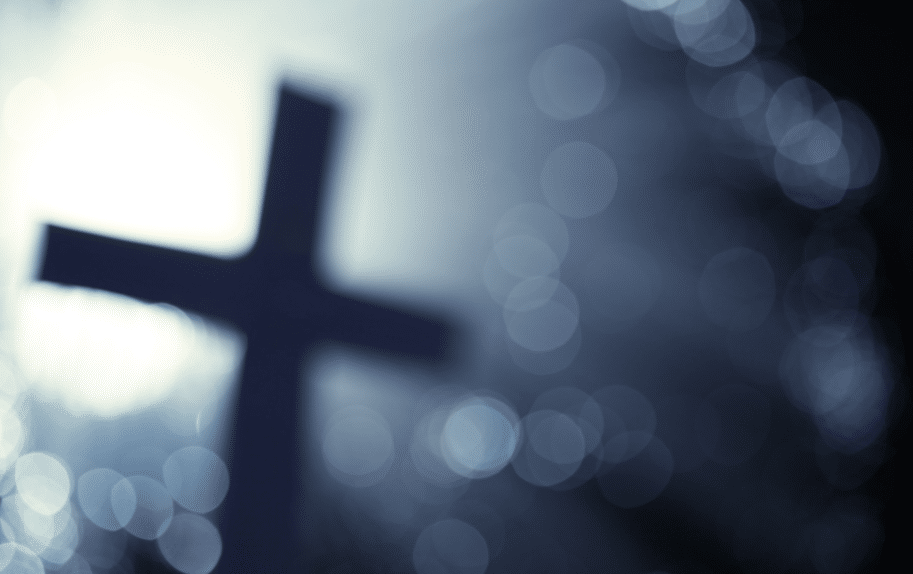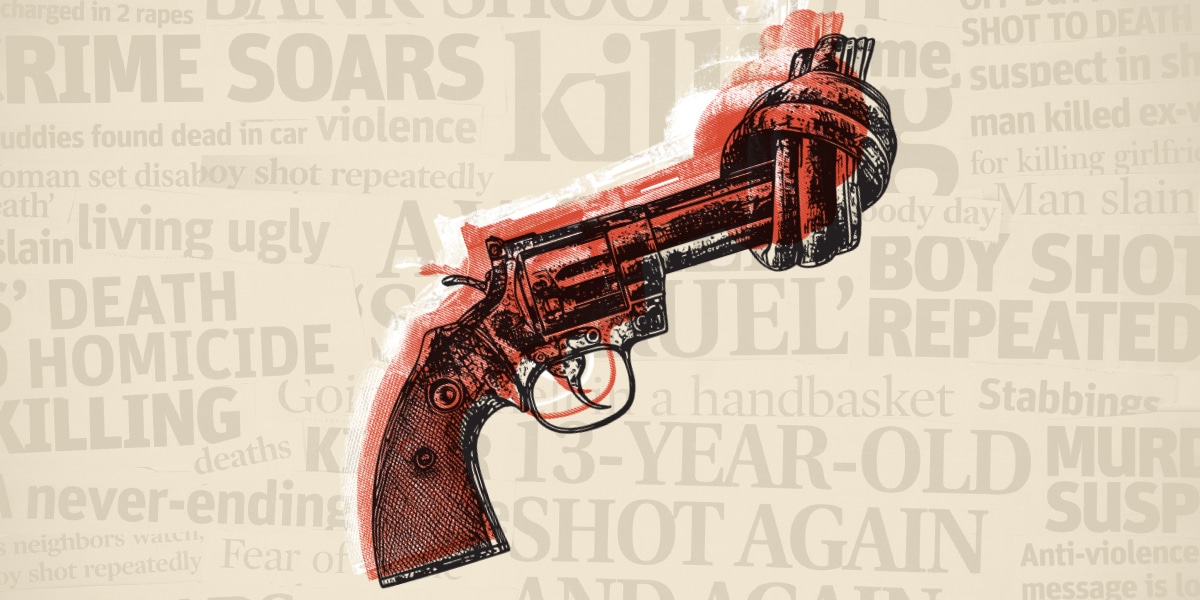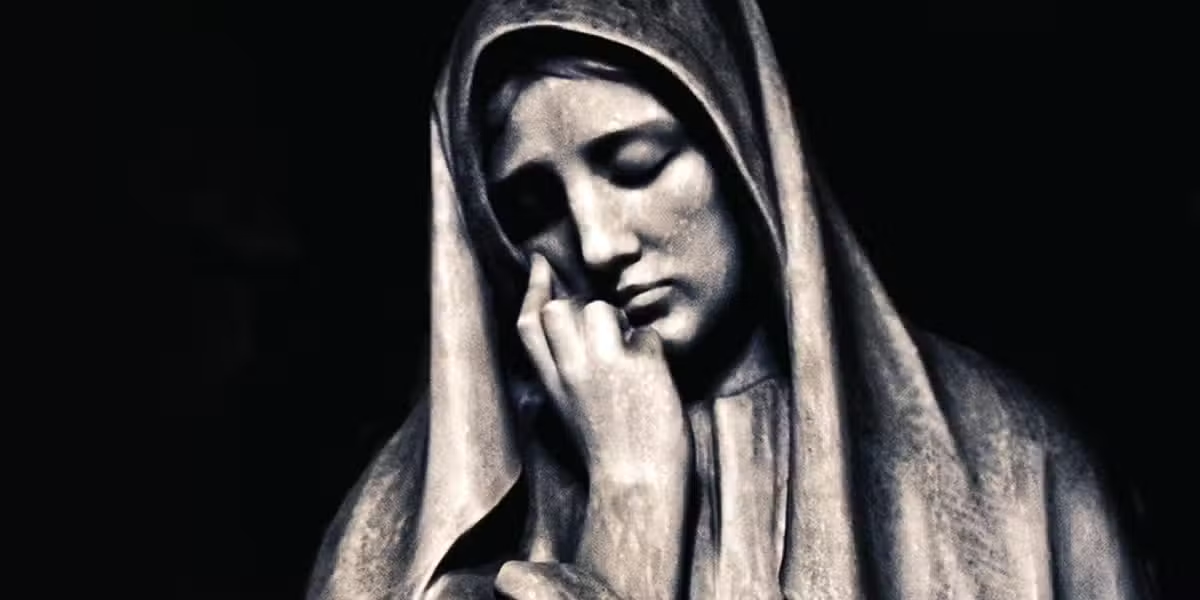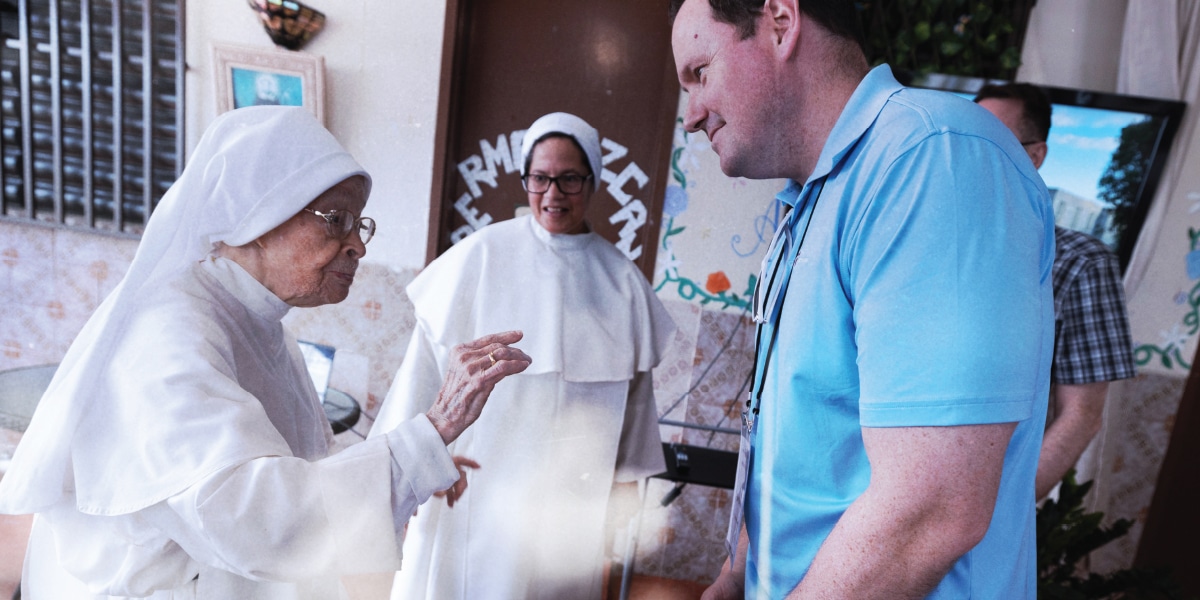Resurrection’s promise is already contained in Jesus’ suffering on the cross.
A week ago, I stood meekly on the beach. The wind whips me, the frigid surf stings me. I’ve long abandoned the idea of actually going in the water; I am committed now to staying dry and comfortable and warm. Meanwhile, my six-year-old daughter bounces happily in the surf.
“Come on in,” she calls. “It feels great!” And now it’s Good Friday. Today we see Jesus, pierced and dying on the cross. Never has Jesus’ humanity been more evident. It is a day of suffering, and suffering defines the human condition.
We all have suffered, or will suffer. There are among us the brokenhearted, and those who will be brokenhearted. We know our day will come, the day when our lives are irrevocably changed by death or suffering. Our culture thrives on distracting us from that time, on denying that time, on filling our days with wondrous things that can make us feel that the days of awful sadness will never come, or that they are so far distant that we need not bother to think of them. There is always the new thing, after all, and medical research is progressing so rapidly that our day of reckoning will be pushed back so far that perhaps we will be immortal.
Jesus, however, tells us something else. Pain and suffering are all around us. If we dare to look, we may be overwhelmed, even paralyzed, by the injustices and evils of our world, not to mention our own personal concerns. Pain will come, and if we are not now walking around shell-shocked, scarred and bleeding, our time will come.
But there is more. Jesus and the Scriptures tell us something more, something different, something radical. From out of the pain and suffering will come life. We don’t know how, we cannot see it happening, but if we trust, if we can muster up even a tiny bit of faith, it will happen.
Taking the Plunge
I’m back on the beach. I finally am just too sick of my comfortable self, too eager to swim the cold ocean, surf the waves, play with my daughter. I take the plunge. It shocks me to the core, but it strangely begins to feel good, fine, great.
I have joined the brotherhood and sisterhood of “Those Who Take the Plunge,” and the world looks different now that I am wet with life. Do I—do we—have faith to take these plunges? When our hour is near, when, like our Lord, we suffer and are alone in the world, will we have faith?
In our struggles, we can look closely at Jesus on the cross. As theologian Richard John Neuhaus says, “Look at him with whatever faith you have and know that your worry about your lack of faith is itself a sign of faith….Look at him. Keep looking, and faith will take care of itself.”
And we can look at the world around us more closely; we can find in our own lives what I call points of presence—those odd, moving, unpredictable moments when we deeply understand that God is near, God is alive, God is present.
Moments of Theophany
In preparing these words, I found a word that brings this home for me. I am obsessively verbal, and a word that carries such meaning is to be savored and enjoyed. It is not the word epiphany, but it is close. Epiphany is defined as a usually sudden manifestation or perception of the essential meaning of something. In fact, in our religion, the Epiphany is celebrated after Christmas with the coming of the Magi—the first manifestation of Christ to the gentiles.
The word I would like to share with you on this Good Friday is theophany. It means the physical manifestation of the Lord’s presence. For some, this might mean a spectacular sunset or a beautiful mountain vista. In my daily grind, as a father, husband, son, heart doctor and pilgrim of struggling faith, I cling to my own theophanous moments. Here are some:
■ Watching the heart. Watching our perfect pump relax, fill, and contract, delivering blood to our tissues, 70 times per minute, 4,200 times per hour, over 100,000 times per day. Watching it stop in a patient near death, then sputter, then start again, regular and strong. For me, this is theophany.
■ I know an 88-year-old man beset with all the problems of life. He has buried his wife of half a century, he has seen a son die unexpectedly, he has seen his dear grandchildren perish in accidents. His heart fails, his limbs won’t obey, he is dizzy. Yet he makes new friends wherever he goes, he visits the sick, he masters the Internet to investigate the emergence of China, he volunteers to prepare Meals on Wheels for “old people.” He is my father, and for me his whole life has been a profound theophany.
■ I am down and demoralized. My patient has died. I walk through the corridors of the hospital like every doctor—in a hurry, preoccupied, late, distracted, busy. As I approach a glass door, I see a construction worker coming toward me struggling with a length of pipe. I could skitter through the door. But not this time—I still have some vestige of politeness to my manner—I feel my mother watching me.
Damn, this will slow me down, I think, but I stop and hold the door so the slow-moving bumbler can stumble through. Hurry up. But then he stops! He has noticed my name tag. He puts down the pipe, and shakes my hand. I took care of his grandfather 10 years ago, and he had always wanted to thank me, but had never actually had the chance.
“How is he doing?” I ask. Well, he died a few years ago, but he never had trouble with his heart again. And he was thankful for a long life. Now I am thankful, too. Thankful to be part of things, thankful to my new friend who gave me back a bit of life’s meaning. Thankful for a moment of theophany.
■ And last summer, my nephew George—who, like your beloved ones, I am sure, was the world’s most precious and perfect 17-year-old boy—stumbled on a cliff during the night on a rocky island in the north woods near Canada. He was found the next day, drowned in the lake. His parents stood before a crowd of a thousand at his funeral, and bravely remembered their joyous son, their gift from the Lord. And in their unspeakable grief and pain they became healers for the rest of us. They pointed to the path, the only path through pain, the path that Jesus himself took. They pointed to life.
I like to think that my nephew George, at some time that night, paused and looked up at the night sky ablaze with the stars over the dark waters. I hope he saw not a cold, dark and barren universe, but instead saw a brilliantly lit window into the vast mystery. I hope he caught a glimpse of the infinite, of the divine. I believe, I have faith, that my George had a moment of theophany.
Transform Us Into Life
On this day, we pray that our pain and suffering will transform us into life. We pray for faith, to find Our Lord on the cross, and to find him again on Easter morning, in the full glory of the Resurrection.








